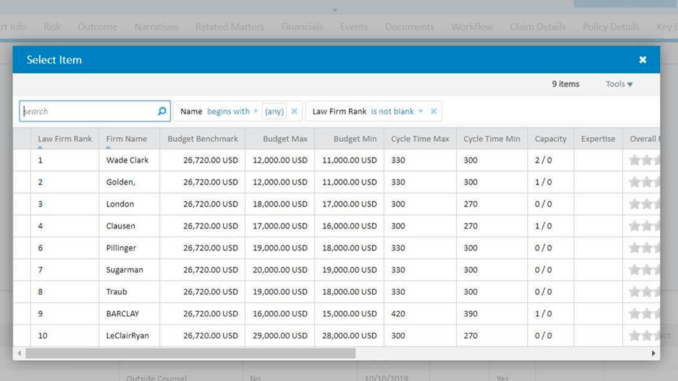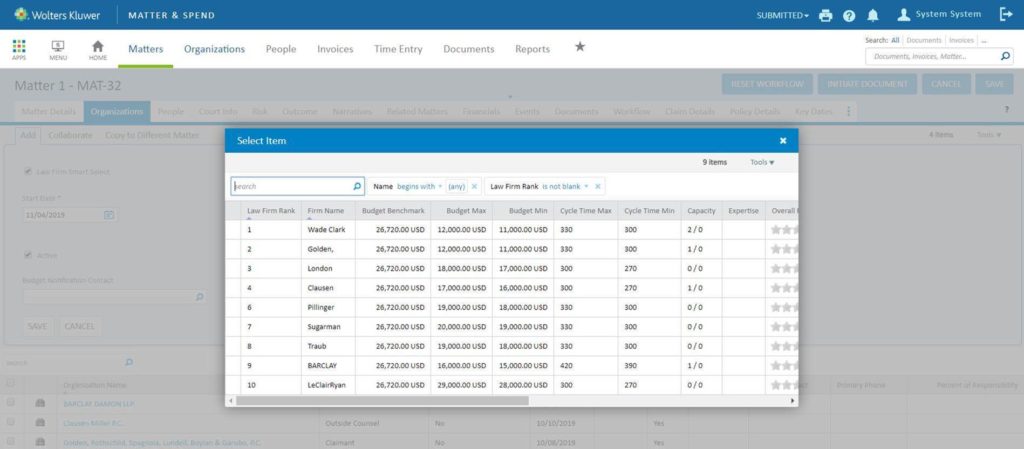
Wolters Kluwer ELM Solutions has announced the release of a new predictive tool for clients that helps them to better estimate future legal costs for litigated matters and to make the best choice of law firm for each case.
Wolters Kluwer’s Barry Ader, Vice President, Product Management and Marketing, told Artificial Lawyer that they drew on over $130 billion worth of invoice data that are already in the company’s ELM billing solution that it provides to clients, plus other client data, to help model the platform’s predictive capabilities.
The new capability – ‘LegalVIEW Predictive Insights’ – comes with the release of the 19.2 version of its Passport software.
Ader told Artificial Lawyer: ‘Most of the time clients are making inaccurate budgets and making decisions on very limited data. We wanted to model out things to answer customer questions, such as: What is the right firm to use? What is the right budget? When should we settle? What is the cycle time for this matter?’
The new predictive module brings together several sources of data, the $130bn of past invoices stored in the ELM system already, as well as data from clients on their executive advisory board of around 20-plus large businesses, among other sources.
Ader said that the end result of this blend of data and their own analysis software results in a predictive capability that shows not just what firms have done with a certain type of matter, but suggests a list of firms that meet your criteria.
He explained to Artificial Lawyer that this was akin to the difference between a TV guide and Netflix, which provided the best viewing choice.
‘This is not showing the past, this shows the optimum choice for a client,’ Ader said.
He added that this ‘is not a tool for law firms, but I predict law firms will want to understand how they are being analysed so they can change their business practices’.
However, he noted that clients can share the software’s findings with law firms if they wished too.
‘The clients have data, but not information. [This] ELM [solution] turns it into information they can act upon,’ he concluded.
When asked about the steadily growing number of other companies in the market working in the billing/cost analytics space he noted that most did not have the breadth and depth of billing data that Wolters Kluwer had, and so could not really provide as useful insights.

For a bit more on how it works see below:
‘The module builds a data model using the LegalVIEW database as a starting point, then layers client-weighted historical data on top to rank law firms and generate predicted budget and cycle time information. Users are given firm score card ratings, key performance metrics (like average rates, invoice accuracy, win/loss ratio, etc.), and the predicted budgets and matter cycle times per firm, so they can be confident they are selecting the best firms likely to yield the best outcomes.
Passport 19.2 also features new analytics capabilities that include LegalVIEW embedded rate benchmarking and expanded use of Tableau visualizations embedded in the platform. These new features will further enable clients to make smarter, faster decisions right within their key legal workflows. The Legal Holds module has also been upgraded with additional features, and new document management capabilities for Office Companion are available to further streamline the user experience.’